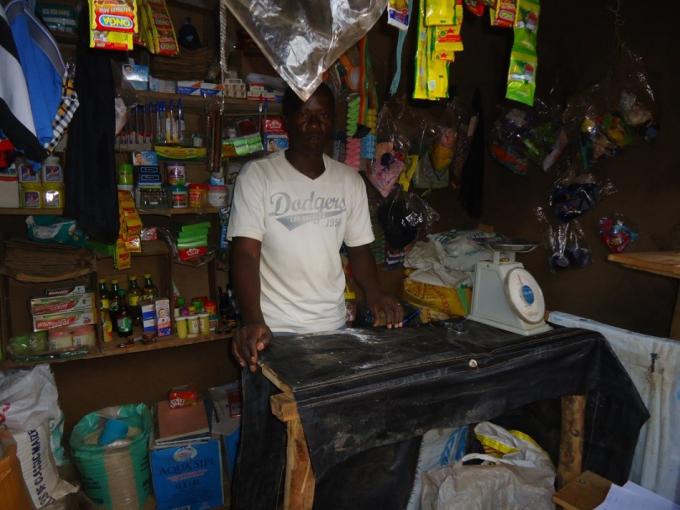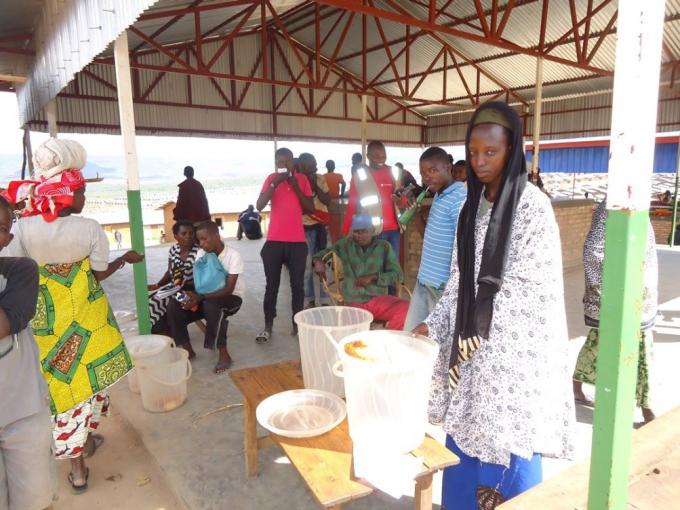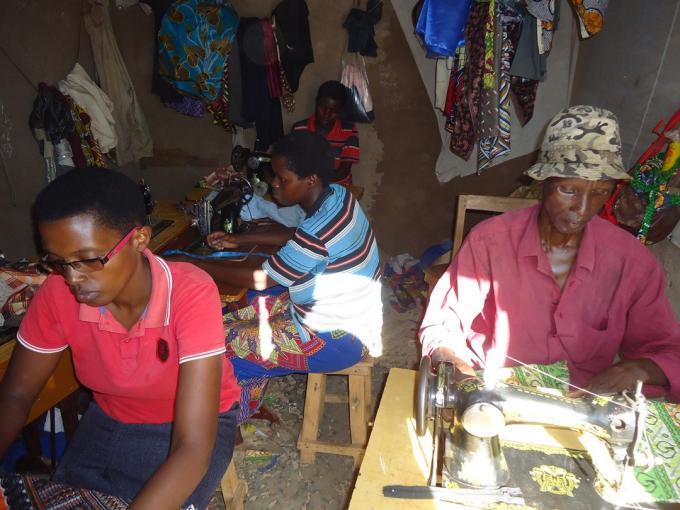Promoting cash transfer for livelihood in refugee camp: Lessons from Rwanda

Tuyishime Deo, 33-year-old came to Mahama camp in 2016. He is married and has two kids aged 3.5 and 1.5 years old. Back in Burundi, he used to be a teacher a primary teacher of Kirundi and French languages. Deo is a beneficiary of Save the Children cash transfer project. “I applied for cash transfer training and got selected. After two weeks training, I was given 200,000 RWF (250 USD), grant to support my business. With the cash voucher I bought 6 bags (of 25kg) rice and 50 kg of sugar, which I sold at my shop. I’m making good profits which help me to expand my shop, and also be able to buy food and clothes for my children and wife. After all, expenses I saved 7,000 RWF (7.87 USD) every month in a bank with MTN mobile money. I’m the member of village saving group, saved 8,000 RWF (9.00 USD). Deo said ‘’the training and cash grant has helped me to grow my business. I have learned to give best customer care service, use of money wisely and the benefits of savings. If I were not part of the program, I could be suffering and face hard time in this camp. Thanks to Save the Children, for helping me’’, says Deo. Written
Since July 2016, Save the Children embarked on Livelihoods and youth empowerment project in Mahama Refugee Camp. The project aims to equip refugees with necessary livelihoods skills, and empower them to mobilize resources that enable them to increase their economic security, thereby reduce vulnerability created & exacerbated by conflict, & pursue goals necessary for their survival & possible return. The project came as a response to the influx of Burundian refugees to Rwanda. Very often, being a refugee means that refugees are not only without national protection, but also poor and vulnerable.
This project aims to address food insecurity, access to basic needs and protection issues through an integrated child sensitive livelihood intervention that improve children’s, parents and caregivers access to food and income to meet other basic needs. In the medium term, the project enables refugees to fulfil their productive potential and self-reliant, where SCI is providing a unique legal and economic enabling environment for refugees to gain productive livelihoods. The project encourages refugees to work and establish businesses, pay taxes, create jobs and in most other ways become part of Rwanda’s economy.
Claudine ‘’cash grant helped me to be self-employed’’.
Niyonsaba Claudine, 19, mother of one child (1-year-old). She came to Mahama in 2015 and got married in the camp a year ago. Before coming to Rwanda, she was studying in primary-senior six in Northern Burundi, but now couldn’t continue her study. Clavdine was selling fresh vegetables in the market before attending the 15 days’ business skill training by Save the Children. Clavedine says ‘’the training has helped me to grow my saving culture and creativity in business environment’’.
She is making circle bread, not common in the camp, and able to get more customers compared to others. That is the reason for her to sell off her bread prior to others. Clavdine sells a bread worth of 24,000 RWF every day in the local market, making profit of 3000 RWF/day. Her husband supports her in selling and making of the breads. Their weekly food expense is estimated at 10,000 RWF (11.25 USD). She is using MTN mobile money to save and has savings of 10,000 RWF and 15,000 RWF in VSLA group. Clavdine is also financially supporting her mom and dad, 10000 RWF on monthly basis. Save the Children negotiated to secure small space for petty traders in the open local market. Clavdine, says “the cash transfer helped me to start new bakery business and continue to be self-employed”.
Jovithe Ndacyayisaba- Tailoring trainer center in the camp.
Jovithe, 25, single, living with her mother and a sister. Jovithe has been running a restaurant which turned out to be unprofitable. She decided to go for tailoring training and attended eight months training. Jovithe hired a private trainer to refresh herself with the course. After attending the business skill training, Jovithe decided to convert the restaurant to tailoring training center. Jovithe bought a second hand tailoring machine at 60,000 RWF (67.48 USD) and rented the room space for five other people with their machines. She charges 13,000 RWF per beneficiary for three-month training. Jovithe hired a trainer to lead the sessions. The training center has 4 students graduating in November and other ten students progressing with their courses.
Jovithe says ‘’the business skill training gave me the capacity to do successful business, create new business and enhanced my confidence’’. Using the cash grant 200,000 RWF, Jovithe, bought 10 sacks (25kg) of rice. After transporting to the camp, Jovithe realised the price dropped down, due to food distributions done in the camp. She sold the product and made 170,000 RWF with loss of 30,000 RWF. Jovithe is supporting her mother and sister from her income. She contributes towards her VSLA account 3000 RWF (3.37 USD) every week.
Christine Nzeyimana, Camp Computer literacy center
Christine is a former secretary, 30 years, from Burundi and has three children. Christin came to the camp in 2015 and started computer training with the little money she had. Save the Children’s business skills training has helped her to understand the benefits of savings and run a small business. Christine has invested the money to grow her computer training center. She bought a laptop for (100,000 RWF) and a printer (60,000 RWF) (67.48 USD). Christine charges a course fee of 7,000 RWF per course that could take one month to complete by giving a 2-hour lesson on a daily basis. She has two students who recently graduated and four currently attending their courses. Christin hires the space for the training center for 15,000 RWF per month. “I am saving with MTN mobile money, around 42,000 RWF and contributing 17,000 in VSLA. I am also helping my husband to continue with his education. My husband is doing his last year ofLaw study in Rwanda University. I ensure my husband has 15,000 RWF pocket money every month,’ says Christin. Her two children now go to school and Christine spends 8,000 RWF every month to buy food and fresh vegetables. According to Christine “Save the Children financial support has helped me to boost my business, earn better, improve my living standards and be able to cover my family expenses. Thanks to Save the Children. Livelihoods for self-reliance is never too early and never too late to start”.
 Rwanda
Rwanda